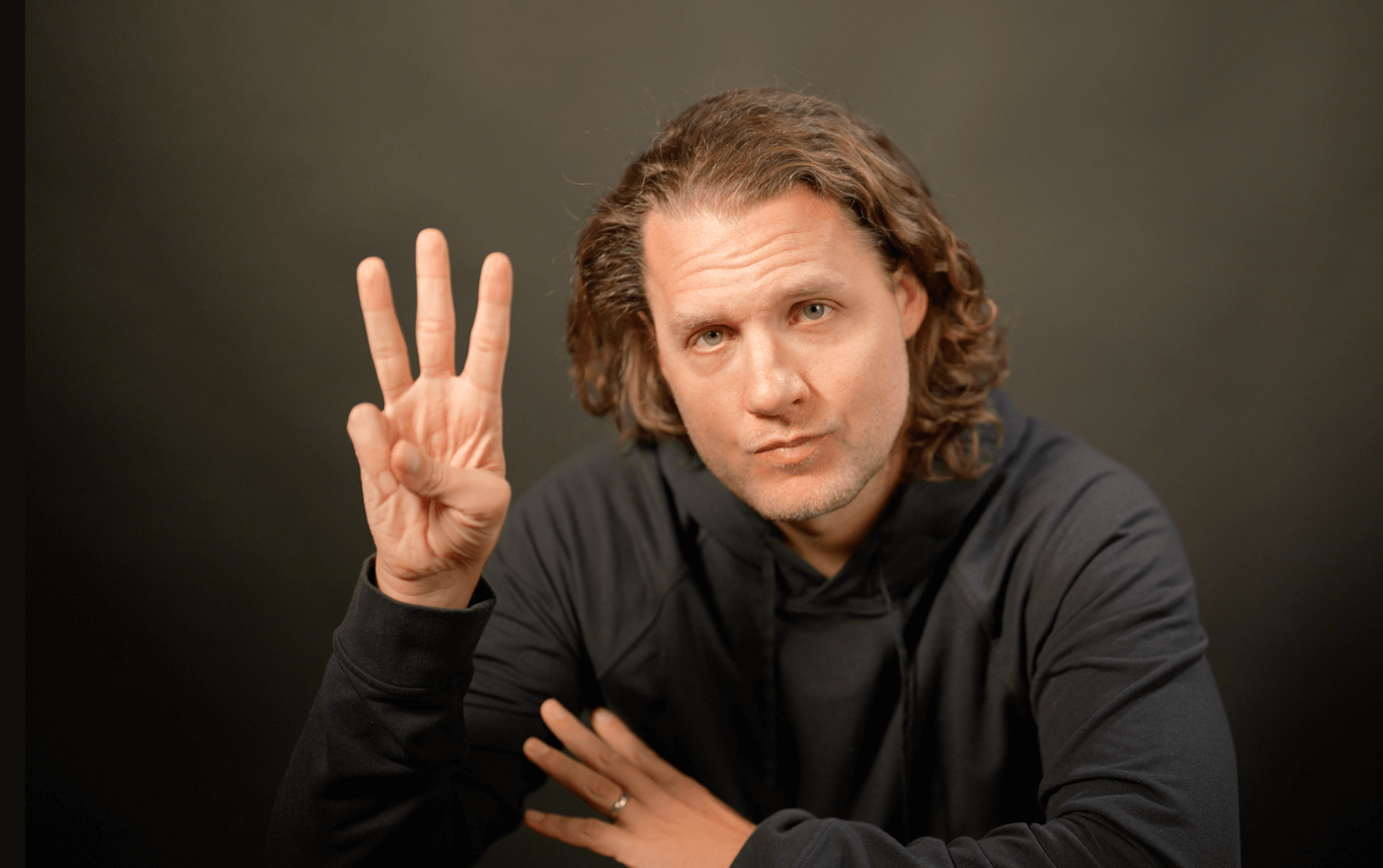Summary of Mark Manson’s 3 Rules for Life:
Mark Manson shares his personal “rules for life,” influenced by his conversations with Dr. Jordan Peterson and existential philosophy. His first rule, “Radical Responsibility,” emphasizes taking responsibility for one’s experiences, even if they’re not at fault, aligning with Jean-Paul Sartre’s idea of living authentically. The second rule, “No Bad Emotions, Only Bad Reactions,” underscores the importance of managing emotions wisely, suggesting that emotions aren’t inherently good or bad, but our reactions can be. Lastly, Manson’s third rule, “Radical Growth,” advocates for actions and decisions aimed at personal and communal improvement. These rules, while challenging to live by, are designed to inspire continuous self-effort and growth.
*****
Summary:
-
Radical Responsibility: Embrace the concept of taking responsibility for everything in your experience, even if it’s not your fault. It’s a cornerstone of self-improvement and authentic living.
-
No Bad Emotions, Only Bad Reactions: Understand that all emotions are natural and focus on responding to them in healthy, constructive ways.
- Radical Growth: Align every action and decision with the goal of personal and communal improvement.
As we meander through life, often seeking guidance like a sailor lost at sea, we sometimes encounter principles that illuminate our path, even amid the foggiest of nights. Enter Mark Manson’s "3 Rules for Life," a refreshingly candid framework drawn from his riveting conversations with figures like Dr. Jordan Peterson and rooted deep in existential thought. Think of these rules as a philosophical compass, steering us towards a more authentic, responsible, and enriched existence.
Rule #1: Radical Responsibility
Imagine waking up each morning with the weight of the world perched on your shoulders. Sounds intense, right? But here’s the twist—it’s the kind of burden that can set you free. Mark Manson advocates the idea of “Radical Responsibility,” a principle inspired by the existential musings of Jean-Paul Sartre. Sartre suggested that our lives are a series of choices, and while this eternal decision-making may seem oppressively burdensome, it’s also what affords us freedom.
The key here is deciphering the profound difference between responsibility and fault. Not everything that goes wrong is your fault; however, it becomes your responsibility to address the curveballs life throws your way. Rather than seeking solace in the blame game or adopting values that aren’t truly ours, Manson encourages us to embrace ownership of our experiences. This approach fosters a life driven not by external pressures but by our own genuine values.
Taking radical responsibility means going beyond the call of average duty. It’s about shaping our narratives instead of being mere characters subjected to life’s whimsy plot twists. Picture this: A boardroom meeting where everything spirals into chaos. Instead of pointing fingers, owning the resolution becomes your compass, guiding you and those around you back to calmer waters.
Rule #2: No Bad Emotions, Only Bad Reactions
Emotions—they’re there, aren’t they? Bubbling beneath the surface, sometimes bursting forth like an uncorked bottle of champagne. Yet, Manson brings forth a revolutionary thought: there are no bad emotions, only bad reactions. Emotions, in their rawest forms, are simply signals, neither inherently negative nor positive. It’s our reactions, the manner in which we handle these emotional waves, that determine the trajectory of our wellbeing.
Modern society has done a fair bit of tango with emotions, often placing them in binary categories. But here’s a thought: what if feeling everything is just part of the human tapestry? Emotional intelligence, or better yet, emotional skill, becomes critical here. Cultivating an understanding that judgments about our feelings can hinder our personal growth is essential.
To conquer this terrain, it’s vital to be open to experiencing emotions without immediate judgment. Let them come, sit with them, perhaps invite them for a cup of coffee. Next, focus on expressing these emotions in healthy ways—communicate without combusting. Whether it’s through art, dialogue, or simple mindfulness, maintaining this balance allows us to live not only more honestly, but more openly.
When public figures showcase emotional vulnerability, it often feels like a beacon of hope. Yet, the underlying lesson is this: Whether under the spotlight or not, everyone dances to the rhythm of their emotions, learning to waltz gracefully through life’s emotional tides.
Rule #3: Radical Growth
Enter the grand stage of life, where the plot doesn’t just center around mere survival, but also evolution. “Radical Growth,” as Manson outlines, is the pursuit of actions and decisions aimed at enhancing the quality of life—both our own and those around us. Imagine embarking on a lifelong expedition where each step is imbued with the intention of improvement, a crescendo leading towards your highest potential.
The quest for growth often feels daunting. How do we align daily humdrum activities with grander visions of progress? Start by ingraining a mindset that every decision, no matter how minute, contributes to the overarching narrative of growth. Armed with this mindset, growth is not just a distant beacon but the very foundation of each day’s undertakings.
Consider this: a casual conversation at a local coffee shop transforms into a learning opportunity—a chance to understand perspectives, a brief foray into another’s world. When viewed through the lens of radical growth, these seemingly mundane interactions become catalysts for profound personal development.
But here’s the crux: radical growth is not about grandiosity. It thrives on incremental steps—small, purposeful actions that propel you forward over time. Imagine a tapestry stitched together not by large strokes but by tiny, deliberate threads; each contributing to a masterpiece uniquely yours.
In conclusion, while these three rules—radical responsibility, no bad emotions, only bad reactions, and radical growth—might sound deceptively simple, embodying them is akin to juggling flaming torches while balancing on a tightrope. Yet, this very challenge is what makes them impactful. They demand constant reflection, growth, and action. Much like life’s unyielding flow, these rules are not stagnant; they evolve with us, pushing us to continually refine our personal philosophies.
By embracing these principles, we embark on a rich journey towards deeper self-awareness and enrichment. In the grand theatrical play of life, we discover our roles not as passive spectators, but as deliberate protagonists crafting our narratives. So, take a deep breath, dive into these rules, and prepare for a life not just lived, but truly embraced.


